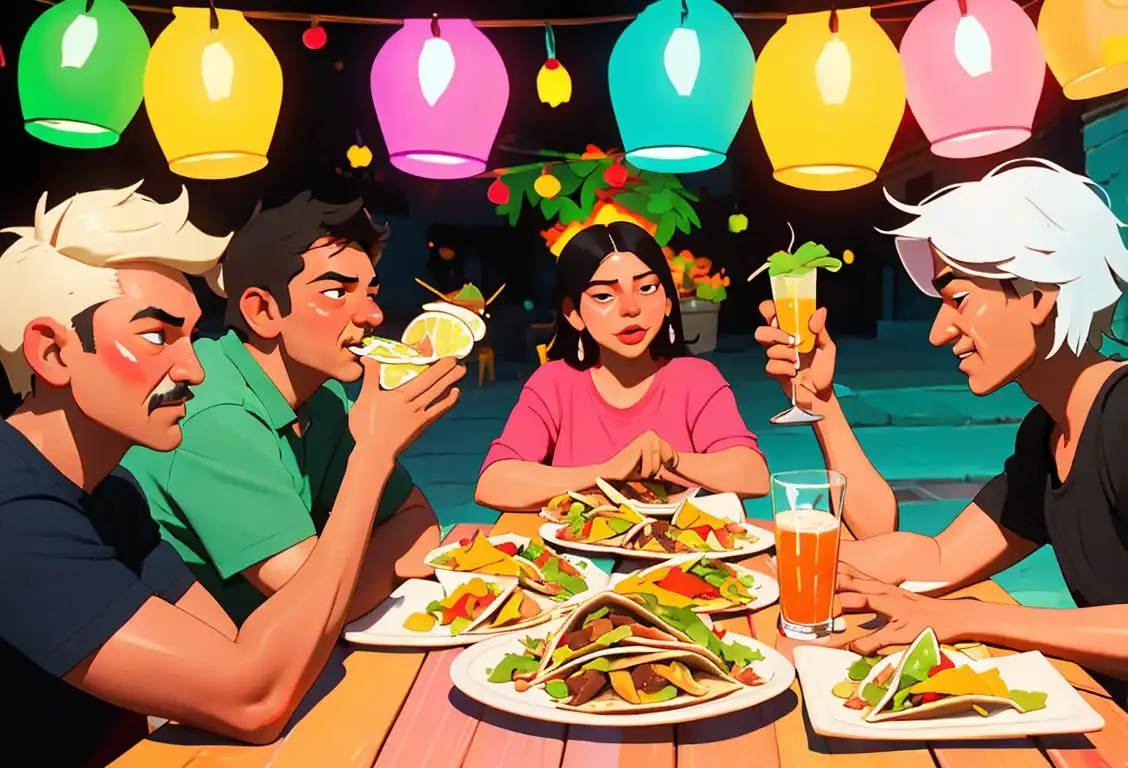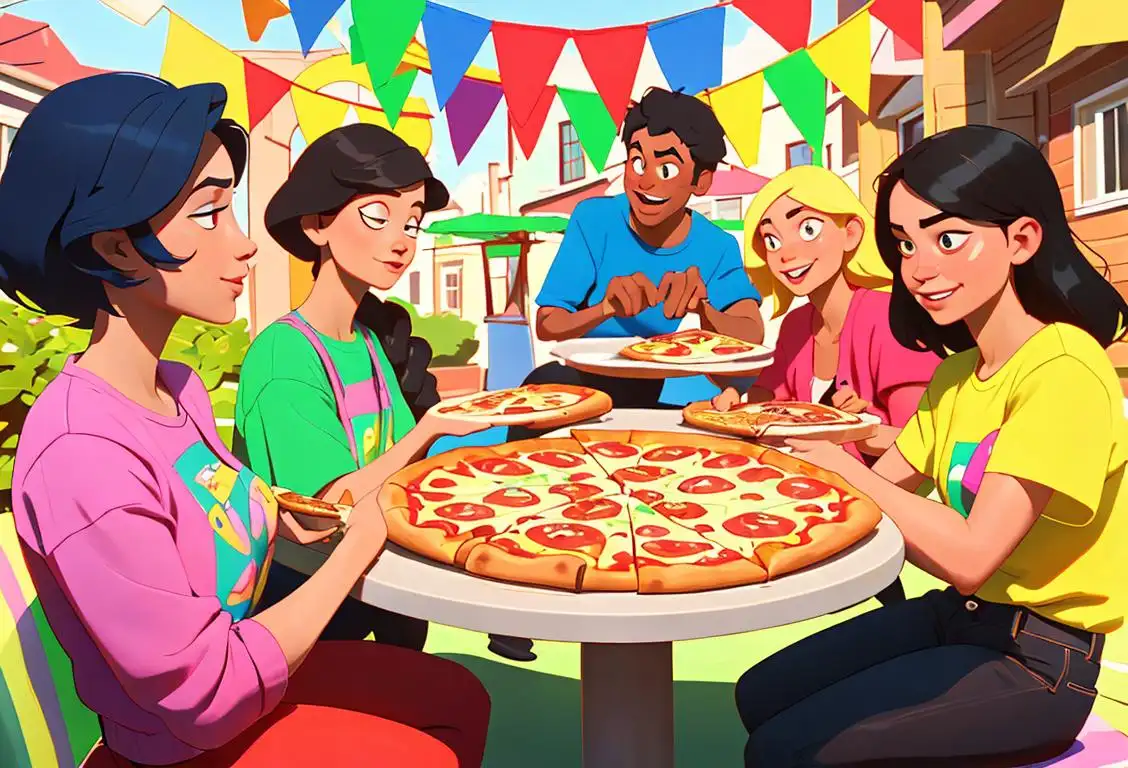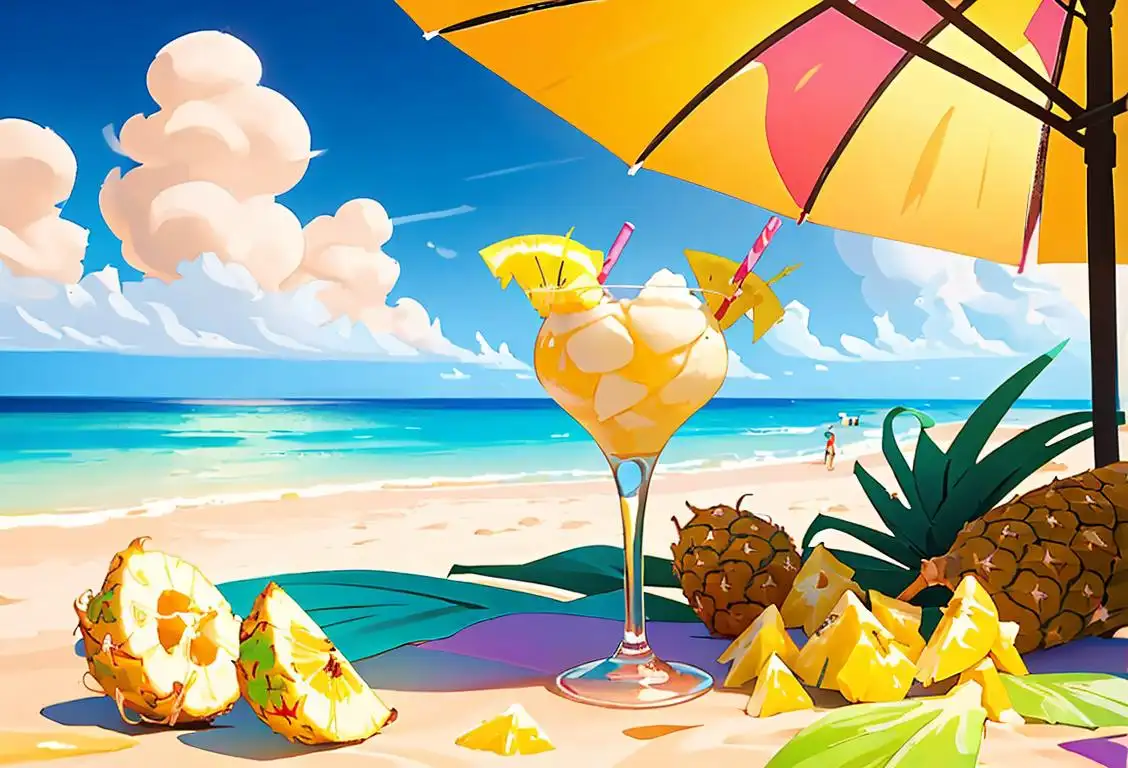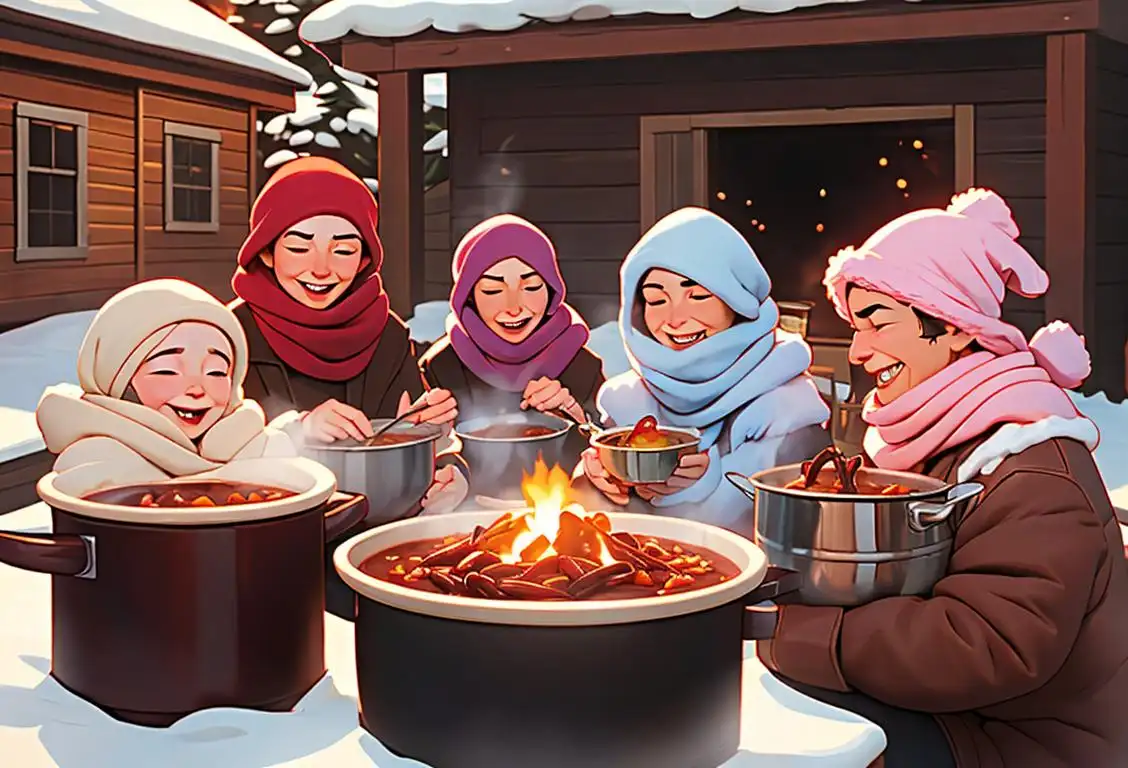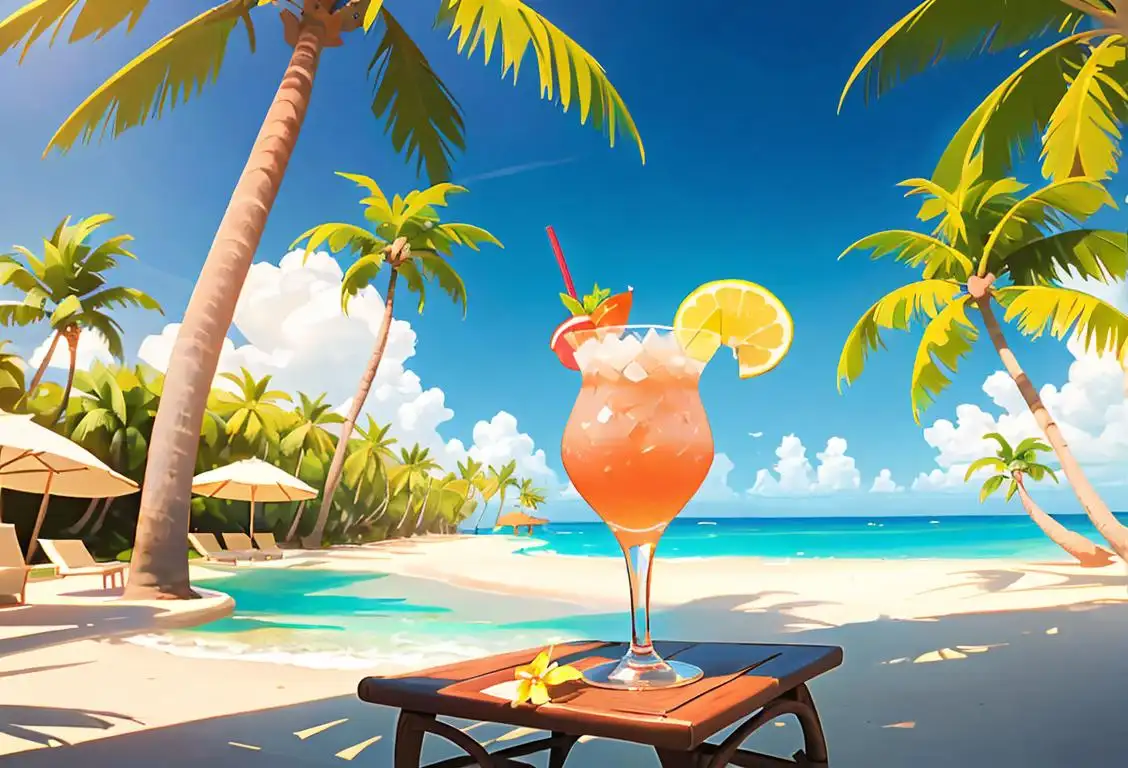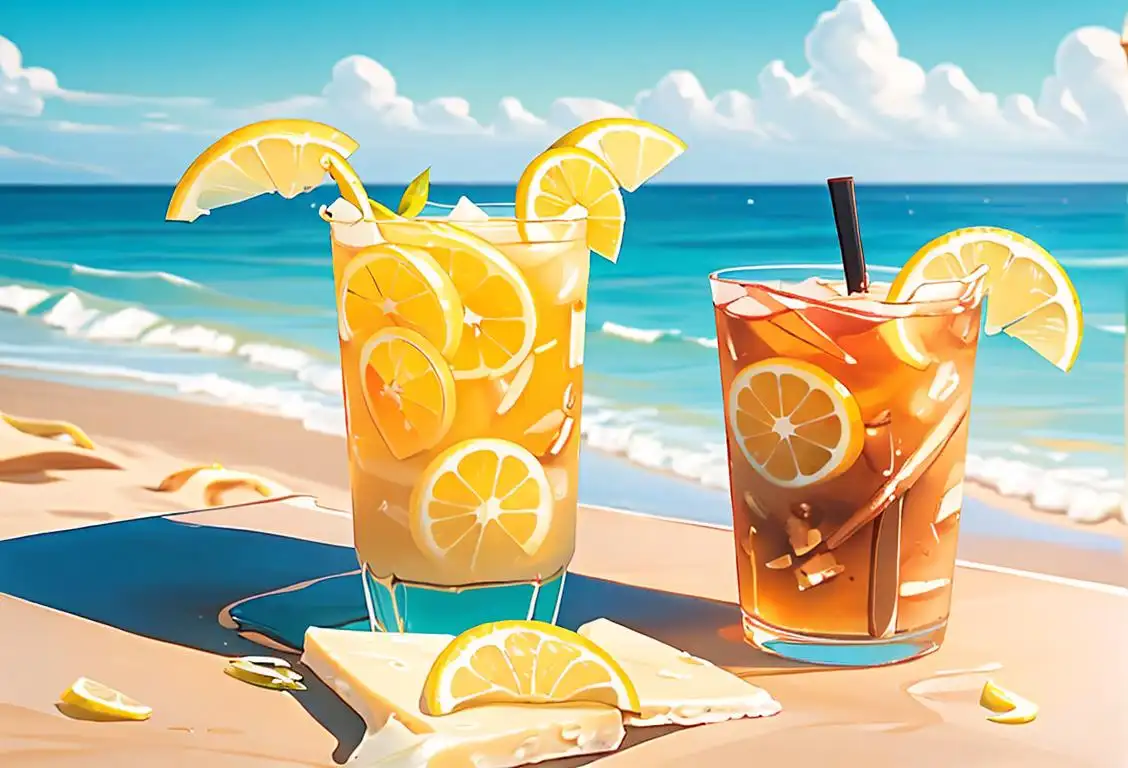National Alchol Day
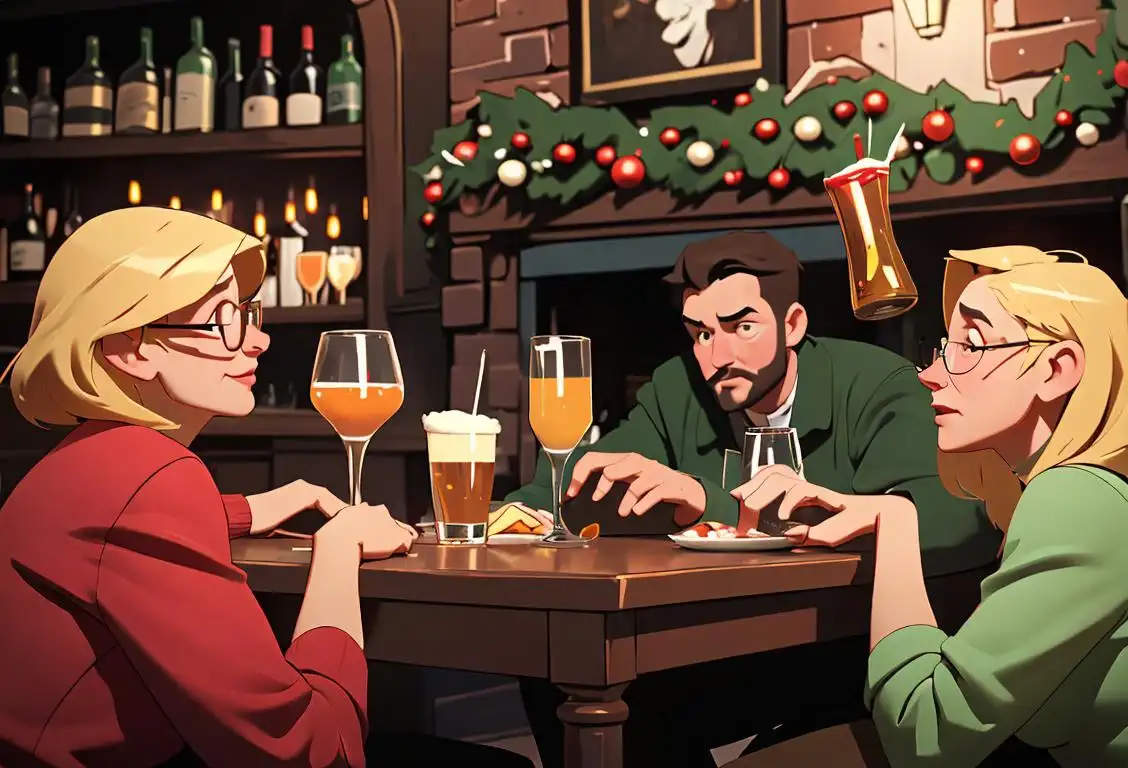
Welcome to the wacky world of National Alcohol Day! Strap in and grab a drink (responsibly, of course), because we're about to take you on a boozy journey through the internet's favorite day dedicated to all things alcohol. Whether you're a connoisseur of fine wines, a craft beer aficionado, or a cocktail enthusiast, this is the day to raise your glass and celebrate the glorious elixir of life.
When is Alchol Day?
It's national alchol day on the 21st April.
Internet History of National Alcohol Day
History has shown us that humans have been enjoying alcoholic beverages for thousands of years. From ancient civilizations fermenting fruits to modern mixologists creating intricate concoctions, the relationship between humans and alcohol is as old as time. National Alcohol Day, however, is a relatively new addition to the calendar, born out of our collective love for all things boozy.
The online world has embraced National Alcohol Day with open arms (and open bottles). Social media platforms like Twitter, Instagram, and Facebook light up with funny memes, clever jokes, and creative drink recipes. People share personal stories of memorable drinking experiences (within reason, of course) and toast to the joy of alcohol in all its forms.
On April 21st, 2017, the internet reached peak excitement for National Alcohol Day, with 224 mentions flooding the digital realm. It was a day filled with laughter, camaraderie, and a few blurry photos of questionable decision-making.
How to Celebrate National Alcohol Day
Celebrating National Alcohol Day is as easy as pouring yourself a glass and raising a toast to the fine art of fermentation. Here are some fun ideas to get your creative juices flowing:
- Host a wine tasting party with friends and discover new flavors together.
- Try your hand at creating your own signature cocktail. Who knows, you might invent the next iconic drink!
- Explore a local brewery or winery and learn about the fascinating process behind your favorite drinks.
- Unleash your inner mixologist and experiment with different ingredients to create a fancy cocktail masterpiece.
- Share your favorite alcoholic beverage on social media and join the lively discussions happening online.
Did You Know?
Did you know that the most expensive bottle of alcohol ever sold was a 1926 Macallan whiskey? It fetched a staggering $1.9 million at an auction. That's enough money to buy a small island or, you know, a whole lot of regular-priced whiskey!
History behind the term 'Alchol'
7000 BC
Ancient Origins
Alcohol has its roots in ancient civilizations, with evidence of early fermentation dating back to 7000 BC. In Mesopotamia and ancient Egypt, fermented beverages made from fruits and grains were used for religious ceremonies and as a dietary staple. These early civilizations recognized the intoxicating effects of alcohol and its cultural significance.
3000 BC
Distilling Innovations
Around 3000 BC, the ancient civilizations of Mesopotamia and Egypt developed the art of distillation. This process allowed them to increase the potency of alcoholic beverages, producing stronger spirits. The distillation technique spread to other regions, including India and China, where it continued to evolve over the centuries.
8th Century AD
The Islamic Influence
During the Islamic Golden Age in the 8th century AD, Muslim scholars made significant advancements in the field of chemistry. They further improved the distillation process, and al-kuhl became a common Arabic term used to describe the essence of a substance. This term was later adopted to refer specifically to distilled alcoholic drinks.
12th Century
European Alchemy
In the 12th century, alchemy became prevalent in Europe. Alchemists sought to transform base metals into precious ones, but in their experiments, they also refined the art of distillation. Through their work, the Arabic term al-kuhl gradually transformed into alcool in Old French, signifying a purified or distilled substance.
16th Century
Modern Usage
The term alcohol began to be widely used in the 16th century to refer to any distilled, intoxicating substance. It became more specifically associated with ethyl alcohol, the chemical compound found in alcoholic beverages. Over time, the understanding of alcohol and its effects on human health and society deepened, leading to regulations and cultural norms around its consumption.
Did you know?
Did you know that the most expensive bottle of alcohol ever sold was a 1926 Macallan whiskey? It fetched a staggering $1.9 million at an auction. That's enough money to buy a small island or, you know, a whole lot of regular-priced whiskey!Tagged
food fun celebration drinksFirst identified
21st April 2017Most mentioned on
21st April 2017Total mentions
224Other days
Vodka Day
Alchol Day
Taco Tequila Day
Chocolate Ice Cream Day
Pizza Party Day
Pina Colada Day
Chili Day
Cheese Pizza Day
Rum Day
Iced Tea Day

